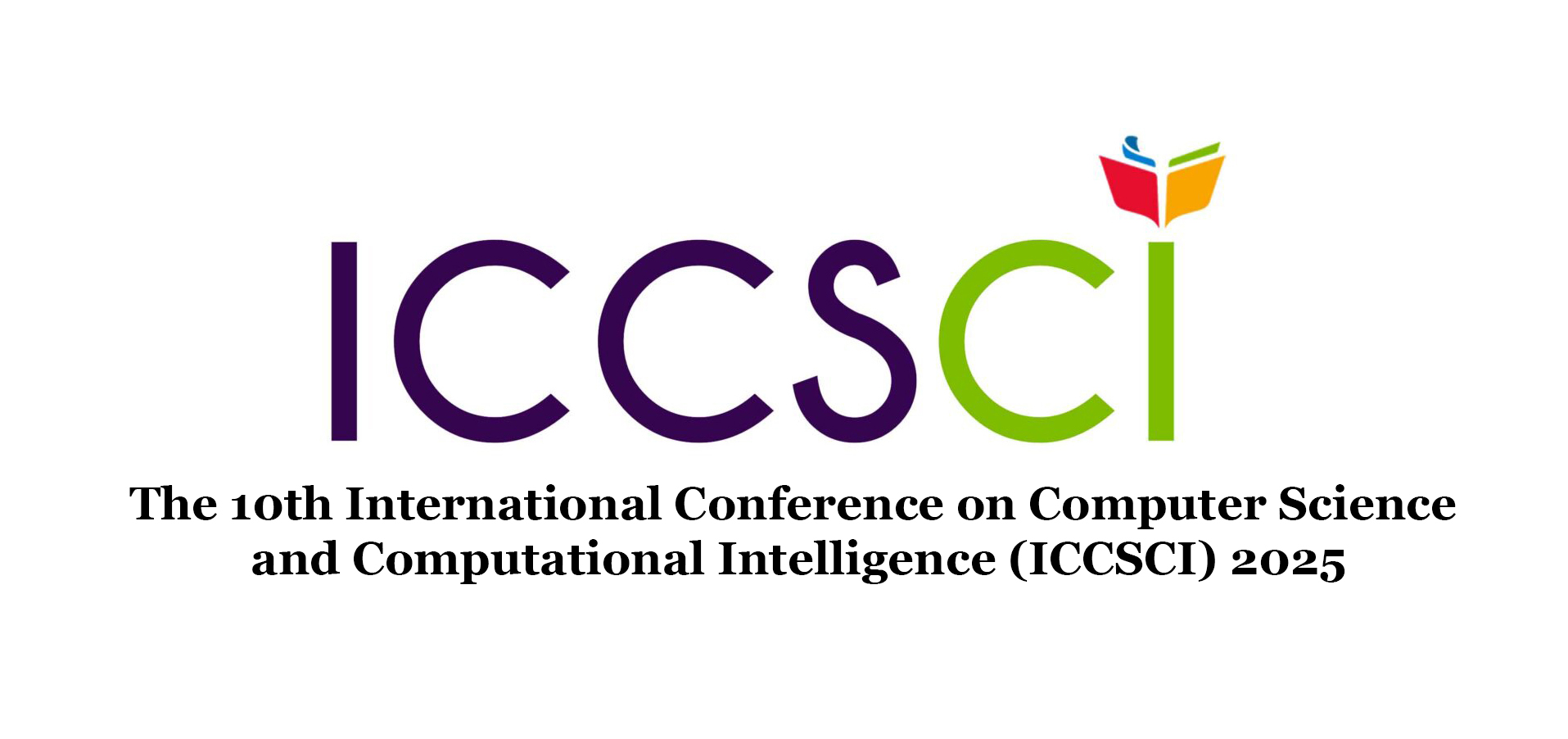Submission Guidelines

ICCSCI 2025 Conference Theme:
“Empowering Digital Society with Computational Intelligence Towards Sustainable Development Goals“
Your papers can be submitted at Submit Your Paper
The scope of ICCSCI 2025 is the theory, application, and experiment on computer science and its supporting fields. The theme of ICCSCI 2025 is “Empowering Digital Society with Computational Intelligence Towards Sustainable Development Goals”. Any works presented in ICCSCI must conform to the scope of the conference, while conformity with the conference’s theme means that the work has a higher priority for acceptance. The scope of ICCSCI 2025 can be further detailed in several tracks. Each track has its specialization over the conference’s scope. The tracks are as follows.
Artificial Intelligent & Cognitive Computing (AICC)
- Artificial Intelligence, Machine Learning and Deep Learning
- Agents and Multi-Agents System
- Bioinformatics
- Computer Vision and Pattern Recognition
- Expert System
- Geospatial Artificial Intelligence (Geo-AI)
- Signal Processing
- Natural Language Processing and its Applications
- Social Bot and Speech Recognition
- Music and Audio processing
- Semantics Sentiment Analysis
- Machine Translation and Summarization
Data Science, Big Data & Information Technology (DBDIT)
- Dataset Creation and Mining
- Data Visualization and Analytics
- Database Management Systems
- Big Data Technologies
- E-commerce
- E-governance
- Decision Support System
- Social Media Analytic
- Distributed File Systems
- Blockchain Technology
- Geographic Information System
Theoretical Computer Science and Software Engineering (TCSSE)
- Compilers and Interpreters
- Computer Architecture, VLSI, and Embedded Systems
- Digital System and Logic Design
- Distributed Systems and Parallel Processing
- Web and Mobile Applications
- Software Engineering
- Computational Mathematics and Modeling
- Computational Fluid Dynamics
- Operations Research
- Optimization Methods & Algorithm
- Simulation and Stochastic Processes
- Statistical Computing
Network System, Cyber Security, and Internet of Things (NSCIT)
- Advanced Sensor and Calibration
- Cloud Computing Platforms
- Field-programmable gate array (FPGA) and Embedded device
- Network Optimization
- Sensors and Robotics Intelligence
- Smart Home and Smart City
- Smart Environment and Tangible Interaction
- Wearable Devices
- Computer Security & Cryptography
- Anonymity and Privacy
- Data Communication
- Data Compression
- Digital forensics
- Hardware and Physical Security
- Security Management and Policies
- Wireless Communication
Computer Graphics, Multimedia & Interaction (CGMI)
- Augmented Reality
- Computer game methodology, design, and development
- Computer Graphics
- Computer Animation
- Digital Image Processing
- Human-Computer Interaction
- Mixed Reality
- Multimedia tools and application
- Serious Game
- User Interface and User Experience
- Virtual Reality

